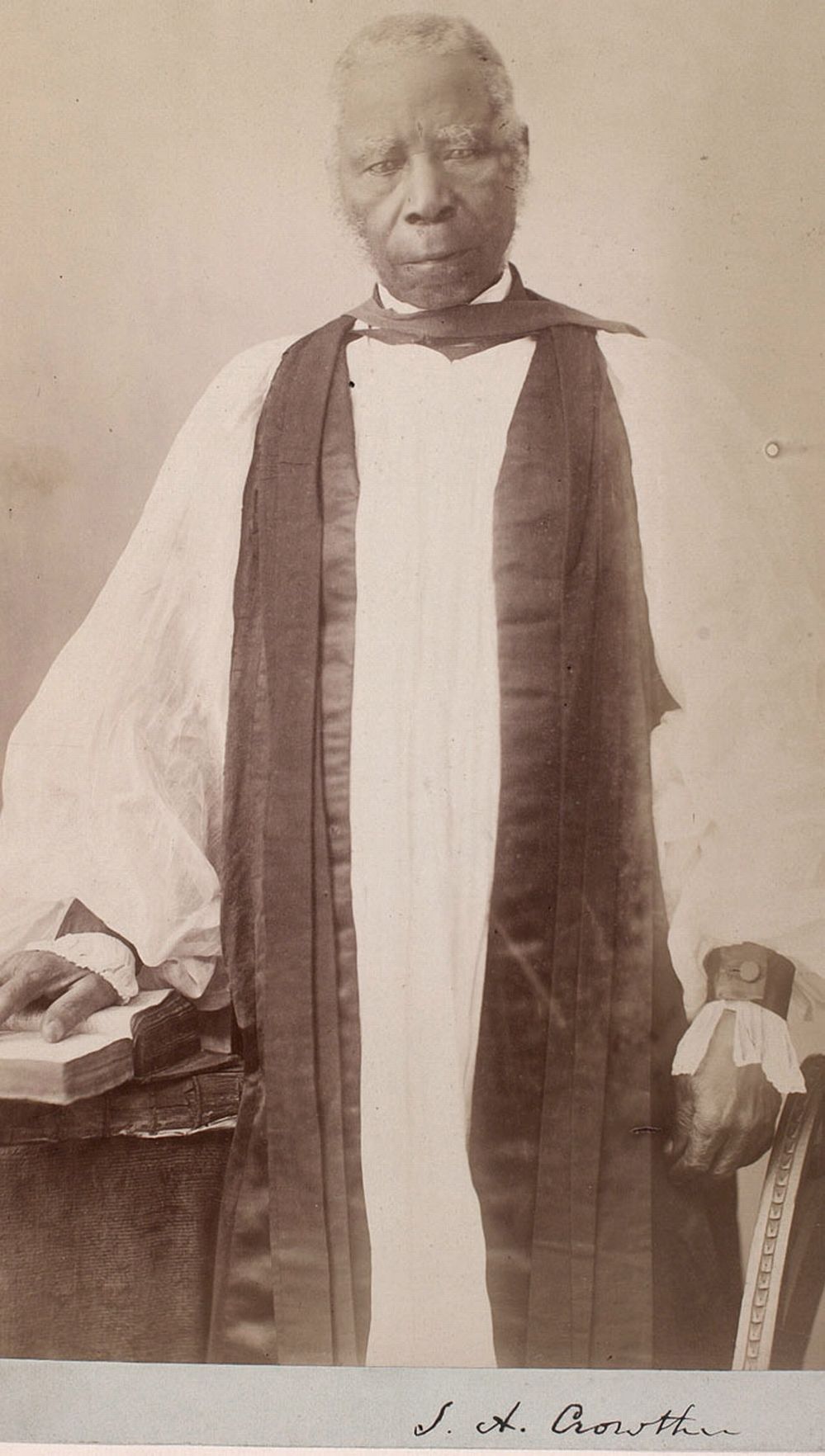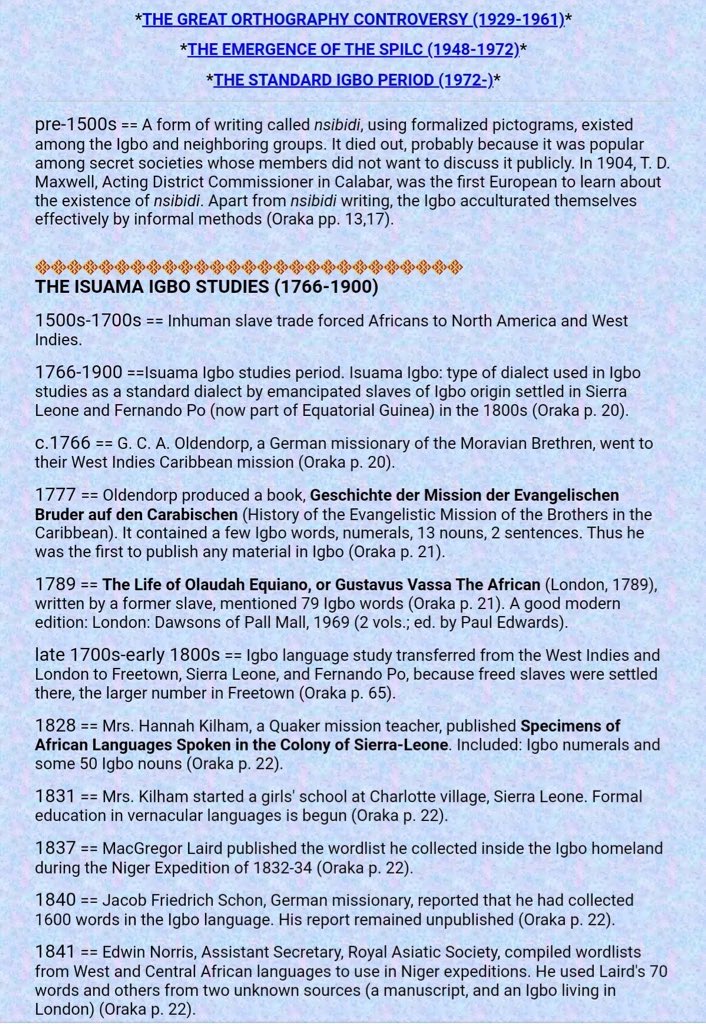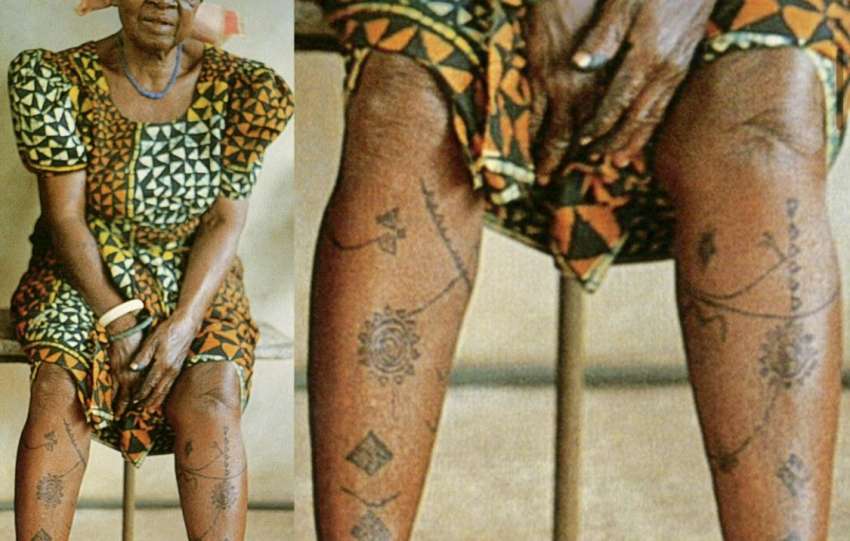The Igbo Bible has a long and rich history, with many Igbo people contributing to its translation. However, there is a common myth that Ajayi Crowther, a Yoruba man, was the only person who translated it. This is not true because it ignores the hard work of others, especially Igbo ex-slaves like Rev. John Christopher Taylor, who worked alongside Crowther. This article looks at the history of Igbo language studies and explores the important roles played by different people in translating the Igbo Bible.

Early Developments in Igbo Language Studies
The period spanning 1766 to 1900 is very significant in the development of Igbo studies, particularly with the use of the Isuama Igbo dialect as the standard for Igbo studies. This dialect had acquired importance among freed slaves of Igbo origin who settled in Sierra Leone and Fernando Po, now part of Equatorial Guinea, in the early years of the 1800s. Scholars such as Oraka (p. 20) pointed out that this dialect had formed the basis for what was considered the formal Igbo studies.
The First Written Igbo Words

In 1777, Oldendorp published Geschichte der Mission der Evangelischen Bruder auf den Carabischen (History of the Evangelistic Mission of the Brothers in the Caribbean), which included a few Igbo words, numerals, and nouns, marking it one of the first instances of Igbo language documentation (Oraka, p. 21). By 1789, Olaudah Equiano’s autobiography, The Life of Olaudah Equiano (London, 1789), included 79 Igbo words, further putting the language into written form. (Oraka, p. 21).
In the late 1700s and early 1800s, with the migrations of freed slaves from the West Indies and London to Sierra Leone and Fernando Po, Igbo language studies grew. Igbo scholars and linguists increasingly concentrated in these areas, as they now had a growing Igbo-speaking community.
Key Contributions to Igbo Language Documentation
This was followed by the major milestone in 1828 when Mrs. Hannah Kilham, a Quaker mission teacher, published Specimens of African Languages Spoken in the Colony of Sierra-Leone, which included Igbo numerals and nouns (Oraka, p. 22). Similarly, in 1841, Edwin Norris compiled a wordlist of African languages that included Igbo terms (Oraka, p. 22).
One of the biggest contributions to Igbo language studies was that of Simon Jonas, an ex-slave of Igbo origin. In 1857, Jonas wrote the first manuscript in Igbo, Isoama-Ibo Primer, for the freed slaves in Sierra Leone (Oraka, p. 22). This primer, among others, contributed to Igbo literacy.
Rev. John Christopher Taylor and His Work in Igbo Translation
Although the name Ajayi Crowther is closely associated with Bible translation in the Nigerian languages, his involvement needs some qualification where Igbo translation is concerned. Indeed, Crowther was a Yoruba who is credited with the translation of the Bible into Yoruba; however, he was never involved with the Igbo Bible. Instead, the first significant work on the Igbo Bible was done by Rev. John Christopher Taylor, a Sierra Leone-born Igbo ex-slave, and is generally known to have translated the New Testament into Igbo in 1866.
As early as 1860, Taylor had already translated important portions of the Bible, including the four Gospels, Acts, Corinthians, and Philemon, into the Isuama dialect of Igbo. Although groundbreaking in nature, his work became really challenging due to the complexities observed in the Igbo language. Taylor, familiar with a couple of Igbo dialects, also found the task difficult and could barely achieve the accuracy of his translation, as cited by Ogunewu. His New Testament translation was heavily criticized for errors, thus leaving him disheartened and he went back to the mission field in 1868, as extracted by Oraka, p. 23.
The Role of Simon Jonas and Other Igbo Ex-Slaves
Simon Jonas, a language interpreter who worked with missionaries, including Crowther, played an important role during the 1857 Niger expeditions (Ogunewu). As an ex-slave, Jonas’s contribution is key in the small group that helped spread Christianity and teach Igbo literacy.
The myth of Ajayi Crowther as a single-handed translator of the Igbo Bible often ignores the collective contributions of these Igbo ex-slaves, including Jonas and Taylor, who were crucial in the early documentation and translation works. As much as Crowther was working on Yoruba language materials, it was Taylor and Jonas who made great strides in Igbo language literacy.
1857 Igbo Primer by Simon Jonas
The first important publication for teaching Igbo was the Isoama-Ibo Primer written by Simon Jonas in 1857. This was to pave the way for further Igbo language studies and an educational tool for both Igbo and other African people wanting to learn the language.
This primer, as well as Jonas’s work, marked a turning point for the formalization of Igbo, far more than any written work by Ajayi Crowther. The Igbo myth is even much worse in saying that the first Igbo primer was translated by Ajayi Crowther. As already said, Crowther has some written contributions to Yoruba language studies, but on Igbo, he did not have anything.
Crowther was only a Yoruba person who did not have fluent Igbo and the linguistic ability for such a translation of such a complex text as the Bible into Igbo; his expertise was in the Yoruba language, and that was the main mission of his work.
Crowther’s inability to speak or write Igbo has been well-documented by scholars. As noted by Ogunewu, Crowther’s fluency in Igbo was never established, and his interactions with Igbo language materials were minimal. He focused on Yoruba, creating significant works in that language, including the translation of the Bible.
However, Igbo language materials, such as the primer and the Bible translation, were the work of other individuals, particularly Rev. John Christopher Taylor was an Igbo ex-slave who had lived in Sierra Leone and had done extensive work on Igbo translation projects.
The entire credit for the translation was given to him because he was the first bishop on the Niger. However, it’s important to note that the translation of the Bible into indigenous languages began in Sierra Leone, Fernando Po, and Liberia. Rev. Taylor, in fact, did most of the work.

References
- Ogunewu, M. L. (2024). The historical development of the Igbo language and the Bible: A study of key figures. University of Lagos Press.
- Oraka, N. I. (1989). A history of Igbo language studies. University of Nigeria Press.
- Dike, K. (1957). The origins of the Igbo people. Anglican History. Retrieved from anglicanhistory.org
- Ogunewu, O. (2024). The history and impact of the Igbo Bible (1840-1920). Negstor. Retrieved from nnegstor.rowbory.co.uk
- James, W. West African countries and peoples. Archive.org.

